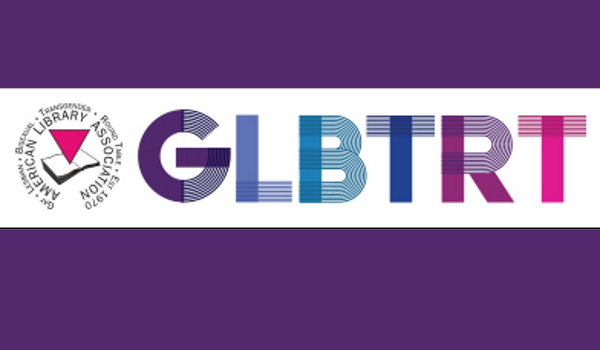By Emilia R. Marcyk
Scholarship and academic news that addresses LGBTQ identities and concerns, of interest to librarians and information professionals
Special Issue
The most recent issue of Trans* Studies Quarterly contains a range of articles on archives and archiving. The issue is divided into three topical sections: 1) emerging archives, 2) established archives, and 3) engaging archives. Explore issue contents further on the TSQ website: http://tsq.dukejournals.org/content/2/4.toc
Publications
- Evans, Robert C., ed. LGBTQ Literature. Ipswich, MA: Salem Press, 2015. URL: http://www.worldcat.org/title/lgbtq-literature/oclc/908686921
A collection of essays that explore LGBTQ identities in literature, and the interpretation of literature through a queer lens.
- Foster, Guy Mark. “What To Do If Your Inner Tomboy is a Homo: Straight Women, Bisexuality, and Pleasure in M/M Gay Romance Fictions.” Journal of Bisexuality (2015): 509-31. URL: http://dx.doi.org/10.1080/15299716.2015.1092910
An account of straight-identified women who read or write M/M fiction for pleasure.
- Pohjanen, Aira Maria, and Terttu Anna Maarit Kortelainen. “Transgender Information Behaviour.” Journal of Documentation1 (2016): 172-190. URL: http://dx.doi.org/10.1108/JD-04-2015-004
Pohjanen and Kortelainen explore information seeking behaviors of 12 transgender individuals through semi-structured interviews, including potential barriers, changing information needs and use of information found.
- Rosqvist, Hanna Bertilsdotter, and Catrine Andersson. “Bad Sex, Good Love.” GLQ: A Journal of Lesbian and Gay Studies (2015): 33-54. URL: http://muse.jhu.edu/journals/glq/summary/v022/22.1.rosqvist.html
An exploration of “homonormativity” in the Swedish Gay Press between 1969 and 1986 and the changing cultural meaning of sex and love during that time.
- Smith, Melissa J., and Elizabethe “Binaries and Biology: Conversations with Elementary Education Professionals after Professional Development on Supporting Transgender Students.” Educational Forum 80.1 (2016): 34-47. URL: http://dx.doi.org/10.1080/00131725.2015.1102367
Smith and Payne discuss the experiences of educators who received training for affirming the identities of transgender students. They found that educators were unable to think beyond the logistics of keeping students safe, and were resistant to engaging with the underlying gender paradigms of the U.S. school system.
- Taylor, Jason L., “Call to Action: Embracing an Inclusive LGBTQ Culture on Community College Campuses.” New Directions for Community Colleges172 (2015): 57-66. URL: http://dx.doi.org/10.1002/cc.20163
Part of a special issue on “Equity in Community College Practice,” Taylor highlights ways in which community college campuses are “unwelcoming to LGBTQ students” and offers potential solutions.
- Woodford, Michael R., Jill M. Chonody, Alex Kulick, David J. Brennan, and Kristen Renn. “The LGBQ Microaggressions on Campus Scale: A Scale Development and Validation Study.” Journal of Homosexuality 12 (2015): 1660-687. URL: http://dx.doi.org/10.1080/00918369.2015.1078205
The authors developed a “microagressions on college campuses” scale in order to examine the impact of casual heterosexism in interpersonal and environmental contexts.
Calls for Papers
- Ada: A Journal of Gender, New Media, and Technology has issued an open call for papers for its November 2016 issue:We invite contributions to a peer-reviewed open call issue featuring research on gender, new media and technology. We are particularly interested in contributions that exemplify Ada’s commitments to politically engaged, intersectional approaches to scholarship on gender, new media and technology.
Contributions in formats other than the traditional essay are encouraged; please contact the editors to discuss specifications and/or multimodal contributions.
Submissions are due Feb 2016. More information available on the Fembot Collective website: http://fembotcollective.org/blog/2015/09/22/call-for-papers-issue-10-open-call/
- There are several current calls for papers from Gender Forum, including:
- Queer cinema: In our forthcoming issue on queer cinema we would like to focus on developments like these: How did representations of queer life in cinema and TV change over the decades? How do processes like mainstreaming and international proliferation affect queer cinema as a genre and queers as a community? And how can we assess the contemporary situation of queer film in the context of dominant developments in our society concerning homosexuality and alternative life models?
- Early career researchers: Contributions can be new academic writing composed specifically for this issue, or exceptional, previously unpublished term papers on all topics pertaining to Gender Studies, Feminist Studies, Masculinity Studies, and/or Queer Theory.
Submissions to both issues are due May 1, 2016. More information is available on the Gender Forum website: http://www.genderforum.org/call-for-contributions/
